The spate of insecurity across Nigeria in recent times has sparked discussions around restructuring the security system to allow the creation of state/community policing. In an exclusive interview with Prime Business Africa’s VICTOR EZEJA, a Professor of Political Economy and Entrepreneurship, Pat Utomi, speaks on how community policing can solve Nigeria’s internal security challenges if appropriately set up and managed. He also spoke on the proposed amendment of the Electoral Act, and governance system in the country.
Here are the excerpts:
Join our WhatsApp ChannelThere are ongoing efforts to amend the constitution to allow state police, do you think state police will solve our problem of insecurity?
The approach to development that I have most strongly favored is a tripartite approach to a developmental state. In 1985, the Aga Khan Foundation sponsored a conference in Nairobi on a tripartite approach to development where the government as a public sector, the private sector, and the NGO sector, so-called PDAs (Private Development Agencies), effectively collaborate with those who have trends in some areas playing more to their strengths and also work as checks and balances. If you’re going to create policing of any kind, you have to bear in mind that the policing governance system including the roles of the private sector and the roles of civil society, will prevent politicians from abusing it. But even if it’s just about abuse, is the Federal politicians not abusing the Federal Police, so, what you actually will have is a state police that is balancing a local government policing system. I’m not afraid of that. That has been exaggerated because of some things that happened in the first republic. I think we need a system of checks and balances in which civil society and the private sector play a role in the governance of the policing system so that the abuse that people fear will be negated.
Policing should be community-based. When it’s community-based, and people know the policemen and they live in the community, it’s going to be more difficult for them to be used as instruments of abuse, because they know your father they know where you’re coming from, they know you. And you coming from the community, know who the thieves are, the history of families and all of that. That’s what policing is. That’s why it’s a local function.
But when you bring somebody from Sokoto and locate him in Sagbama (a local government area in Bayelsa State), he doesn’t care, he doesn’t have his roots in that community, and so, you will have a different outcome when policing is local. So, I’m not afraid of that.
READ ALSO:
- Governors Will Abuse State Police – Shehu Sani
- Public, Private Sector Partnership Solution For State Police Funding
- State Police Only Antidote To Tackle Insecurity, Says Expert
There are talks about changing from presidential to parliamentary system, do you think that is necessary?
Constitutional reform is an imperative. The Nigerian Constitution has been so abused that we need major reforms, learning from the mistakes of now. So, that is very important, but in some ways, I am afraid that the National Assembly is not primed to drive those reforms, because one of the biggest reforms we need is to reform the National Assembly. One of the biggest problems we have right now is a problem of the cost of governance and National Assembly is a big source of that problem. The orientation of people in the National Assembly is that they see themselves as competing with the executive branch for national resources. They think that because the president was elected, they too were elected, they need to get more of the nation’s money. They completely missed the role or the object of the role. One of the things that any restructuring that makes sense will take into account is that we need to dramatically trim the size of government beginning with the National Assembly.
Yes, I have some kind of greater affinity, to a Westminster parliamentary system because, it is less expensive in terms of seeking office, because peers can hold you accountable, because the government needs to constantly respond to the people and not think oh, four years from now we’ll deal with that.
A government in a parliamentary system can fall at any time. So, as it were, it is more readily held accountable than a presidential kind of system. But how we are going about these reforms matters. Right now, I am not so sure that most people trust the National Assembly members as a source of these kinds of reforms. The question is what’s the alternative?
Part of the alternative is that we may need to either go for a Constituent Assembly or if a private member can take literally, hook line and sinker, the work that was already done, under Jonathan administration, the constitutional reform conference of 2014, and as a private member’s bill, table it before the National Assembly, and the whole country begins to debate the bill and perhaps, we would make more progress in determining whether the people will feel more comfortable with it as a system of government.
Talking about reform of the Electoral Act, given your experience in the 2023 general election what important things do think the lawmakers should focus on to ensure free, fair and credible elections in future?
In terms of reforms of the Electoral Act, the person that should be on the dock should be INEC, not you trying to prove you won an election if there’s a problem. The electoral process must eliminate the human interface as much as possible. I think that somebody put it very well recently and says the young people who vote and spend their money to vote in BBNaija and all of that, none of them dispute the outcome, because they know that the electronic system will produce the correct outcome.
Why is it not possible to use exactly the same system that they use to vote in BBNaija for Nigerian elections? The truth of the matter is that the system was deliberately broken into by INEC. I can’t understand why this loss of a sense of shame is so huge that Mahmood (INEC Chairman) is still there when he should have resigned a long time ago, and he’s organising elections. He has no credibility anymore, and INEC has no credibility whatsoever. As Enyinnaya Abaribe (one of the Senators from Abia State) said in the CBN annual lecture, in the same election he participated in, there was no problem of uploading his own and then suddenly the same machine could not upload the Presidential one. Of course, they were scared to death that they were going to lose the election. And they wanted to interfere with the process and INEC aided and abated that. This is why we have a crisis of legitimacy in the country.
READ ALSO: How Fresh Electoral Act Amendment Will Curb Irregularities In Future Polls
People think grabbing power is just grabbing it and Nigerians will begin the usual ‘just leave him na, well what can we do; it has happened’. There is a legitimacy crisis and it’s not easy to govern with this kind of huge legitimacy overhang. Not easy to govern because the people don’t believe that you belong to them. If you check out the meaning of legitimacy, it is the kind of like, acceptance of your due authority that you can govern, and rule over us. When it does not exist, then governing becomes problematic. That’s the real problem, and that’s why it’s so important to get INEC right, to get the judiciary right and to conduct elections in a way that people cannot believe the outcome is really from the voting.
Recently, you talked about forming a coalition of opposition political parties with clear ideology to come up with a candidate to take over power in 2027, how do you think that would work?
To start with, the first really important thing is to recognize that Nigeria, unfortunately, does not have political parties. What we call the APC, PDP, are essentially cults in which they use machine politics to create what seems like election outcomes but in real terms, real elections take place and the outcomes give legitimacy when you have a political party, that has first of all, deeply reflected on what kind of socio-economic and political system can best provide ways of solving problems for society. This is generally called a worldview. Some people call it ideology. But when you clearly establish these general theses on how to solve problems, an ideation based, then the next thing that you do is to establish the values of the party. Then you use that for recruitment and social socialization of people into the party. That’s when you have a political party and then you have, as you come into government, clear goals- what the perm sec and other civil servants must do when they come to work every day to get the country in the direction that you have outlined.
This, unfortunately, has not been the case with our Nigerian political parties. So, what we have said is that we want to begin to build one such party, but we are open to the three major opposition leaders coming to reasons with us. Not having that gives you the kind of thing that happens when even a national ruling party cannot organize primaries in a state. Three people emerged as governorship candidates in Edo State. What’s more disgraceful? It is just that elements within the cult are struggling for who will come into the state capture ring and pillage public resources. If there was a political party, if there were a certain set of ideas, then those who believe in those ideas, it is easy to separate them, throw them to the gates, and the people would pick those who have clear ideas about what to do.
Victor Ezeja is a passionate journalist with six years of experience writing on economy, politics and energy. He holds a Masters degree in Mass Communication.

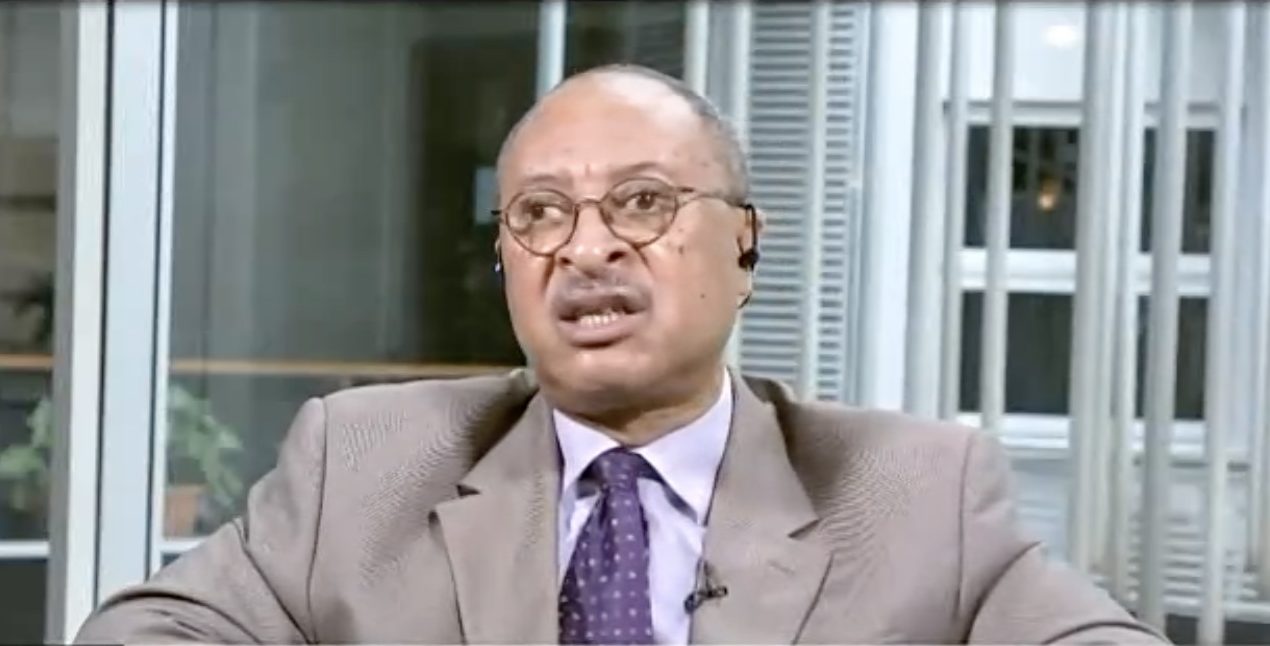



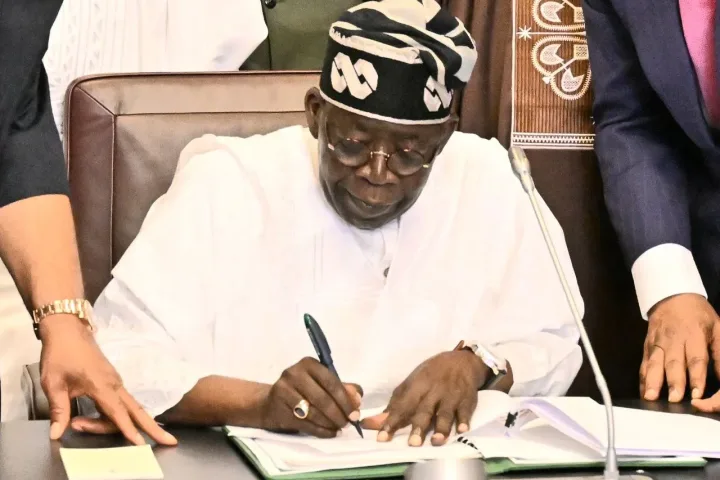
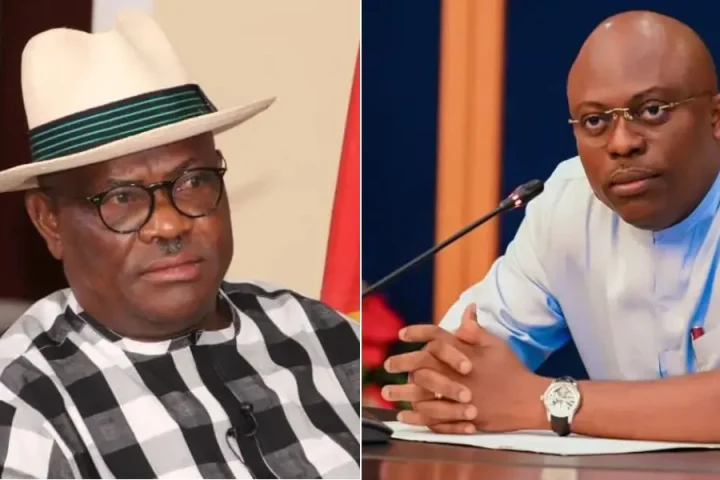







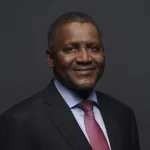

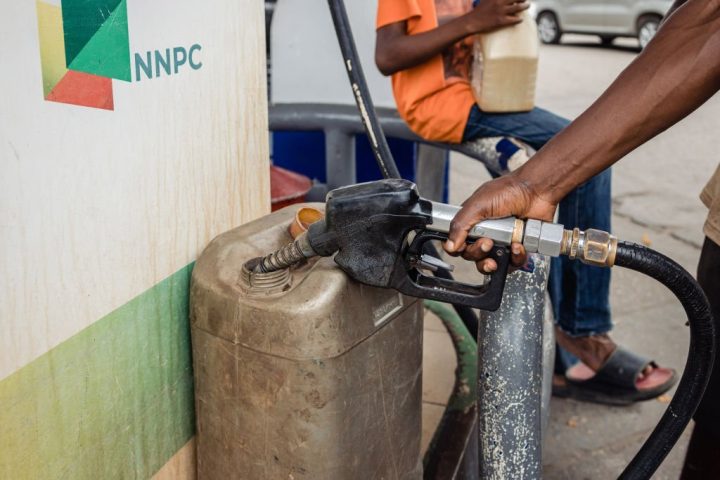

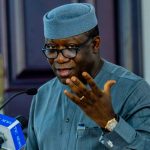
Follow Us